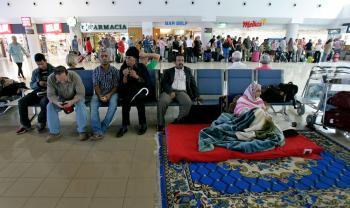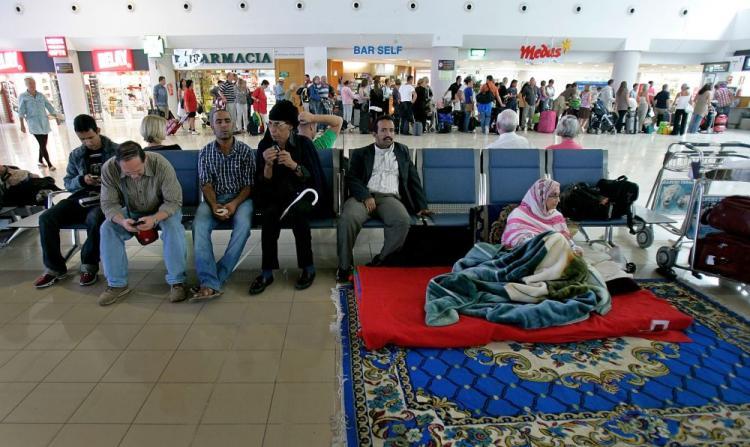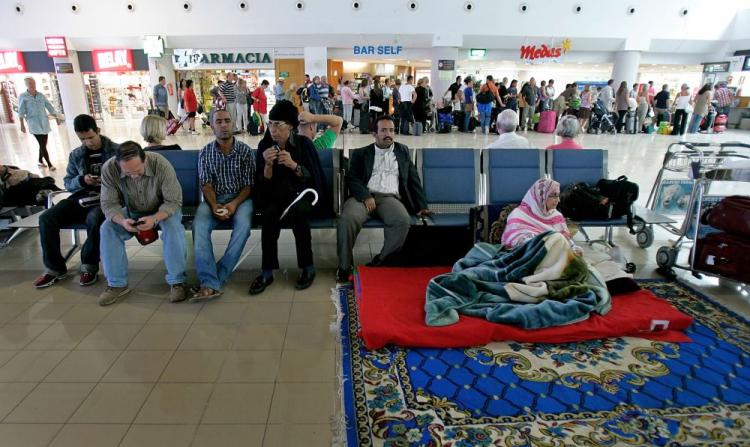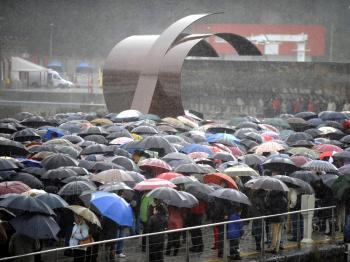Saharan Activist Stranded at Airport on One-Month Hunger Strike
Political and human rights activist, Aminatou Haidar, who has been on a hunger strike.

Award-winning political and human rights activist Aminatou Haidar sits on a mattress and rug in the airport terminal at Arrecife Airport on the Spanish Canary Island of Lanzarote in what has accumulated to a month stay. It has been reported the Spanish government will be sending Haidar back to the Moroccan controlled Western Sahara. Desiree Martin/AFP/Getty Images
|Updated:



_medium.jpg&w=1200&q=75)

